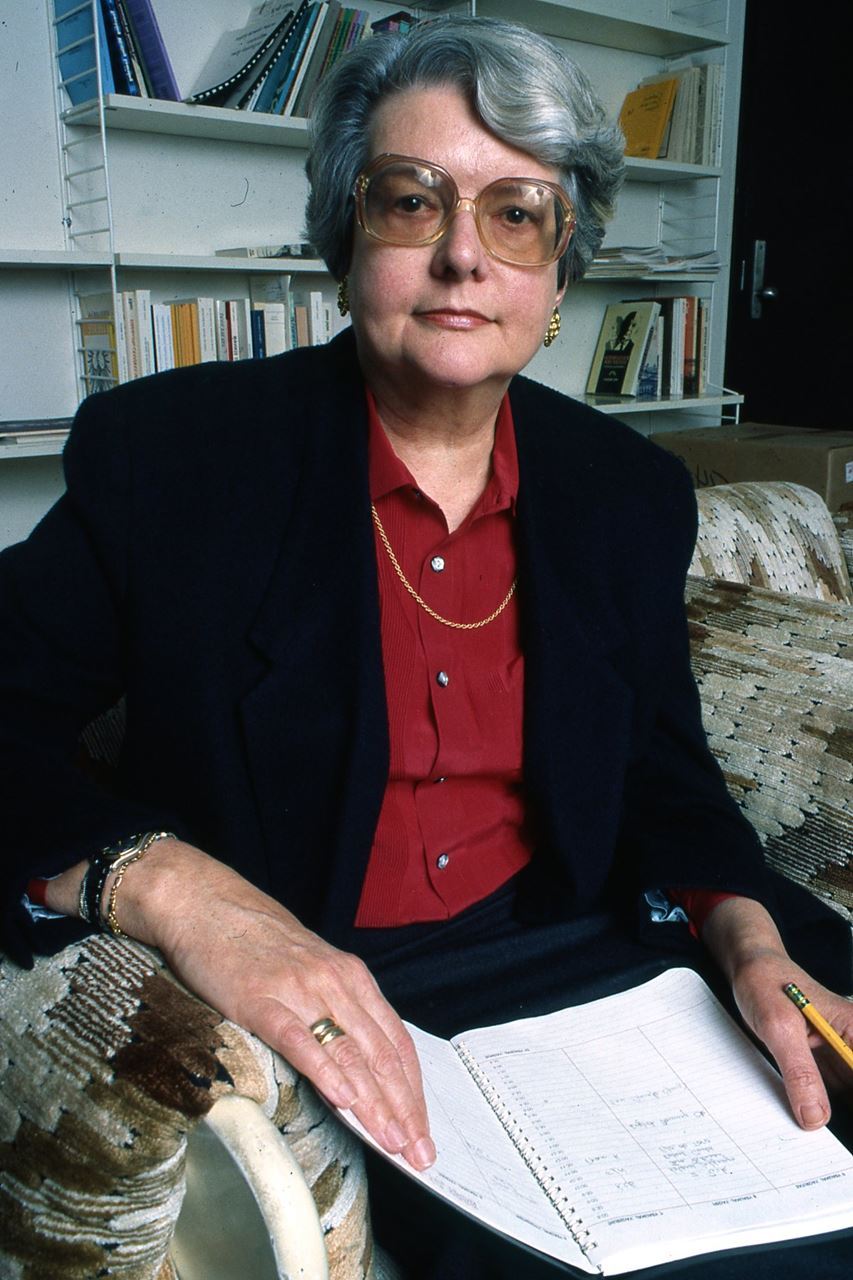Margaret Wade Labarge Prize
Jump to 2026 Call for Submissions

The prize for the best book published by a Canadian medievalist is named for the Society’s first President Dr Margaret Wade Labarge. It was instantly dubbed “The Polly,” reflecting the nickname by which this warm and beloved medievalist was known from coast to coast.
Throughout her career Dr Labarge was an academic anomaly. She was an inspiring figure and a respected independent scholar. Although she taught at Carleton and Ottawa from time to time, she did not hold a full-time academic appointment. Nevertheless, she was a sought-after speaker and her scholarship was acclaimed across Canada and throughout the United Kingdom and the United States. She wrote nine books on a sweeping array of topics ranging from A Baronial Household of the Thirteenth Century (1965); The Life of Louis IX of France (1968); Medieval Travellers (1982); and perhaps most significantly, Women in Medieval Life (1986), a pioneering monograph dedicated to the study of women in the Middle Ages. Her contributions to medieval studies in Canada was recognized by election to the Royal Society of Canada and appointment to the Order of Canada.
With this award for an outstanding book, the Society seeks to recognize and encourage the quality and diversity of scholarship exhibited by our first President, Margaret Wade Labarge.
 | Congratulations/Félicitations!Mo Pareles' Jewish Law, Christian Supersession, and Bible Translation in Old English (UTP 2024) has won the / a gagné le Prix 2025 Margaret Wade Labarge Prize. The Committee's citation reads/La citation du comité est la suivante: Proceeding from Old English translations of Leviticus through the works of the most prolific Old English homilists of the tenth and eleventh centuries, Nothing Pure explores the unsettling ways through which medieval Biblical translations appropriated, reshaped, and repurposed Jewish laws to suit Christian sensitivities. For pre-Conquest writers, as Pareles persuasively demonstrates, supersessionary translation served as a vehicle for wrestling with questions of sovereignty and sexuality, embodiment and exclusion, desire and disgust. Especially impressive is Pareles’s attentiveness to interpolations, elisions, juxtapositions, and resonances—in short, the textual strategies through which the very Jewishness of Jewish law could be maligned, ridiculed, or even erased. As a work of scholarship on Old English prose, the book demonstrates depth and rigour, applying a sophisticated theoretical framework with clarity and effectiveness. As an interdisciplinary contribution to medieval studies, it illuminates the disturbing underpinnings of urgent intellectual and political issues. |
Call for Submissions: 2026 Labarge Prize
The Canadian Society of Medievalists/La société Canadienne des médiévistes welcomes submissions for the Margaret Wade Labarge Prize for 2026. The Prize will be awarded to a book published in 2025 on a medieval subject (scholarly monograph, edition, translation, or other academic books will be accepted by the prize committee). The book must be written (or co-written) by a Canadian medievalist or a medievalist who lives in Canada. Edited collections of essays are not eligible.
Please send three copies of the book (hard copies) to the Labarge Prize committee chair, by 15 Jan. 2026:
Professor Ivana DjordjevićLiberal Arts College
Concordia University
1455 Boul. de Maisonneuve West
Montreal, QC H3G 1M8
queries to: ivana.djordjevic@concordia.ca
The prize winner will be announced at the Annual General Assembly of the CSM in May 2026. The prize includes three years of membership to the CSM, including subscription to the journal Florilegium.Past Winners of the Margaret Wade Labarge Prize
For further information on the winning books, see the entries below this list.
2024 - Rowan Dorin, No Return: Jews, Christians, Usurers and the Spread of Mass Expulsion in Medieval Europe (Princeton UP, 2023)
2022 - Kathryn Kerby-Fulton, The Clerical Proletariat and the Resurgence of Medieval English Poetry (UPenn P, 2021)
2021 - John Osborne, Rome in the Eighth Century: A History in Art (Cambridge University Press, 2020)
2020 - David K. Coley, Death and the Pearl Maiden: Plague, Poetry, England (Columbus: The Ohio State University Press, 2019).
2019 - James Grier, Ademarus Cabannensis Monachus et Musicus. Corpus Christianorum, Autographa Medii Aevi, 7. (Turnhout: Brepols, 2018).
